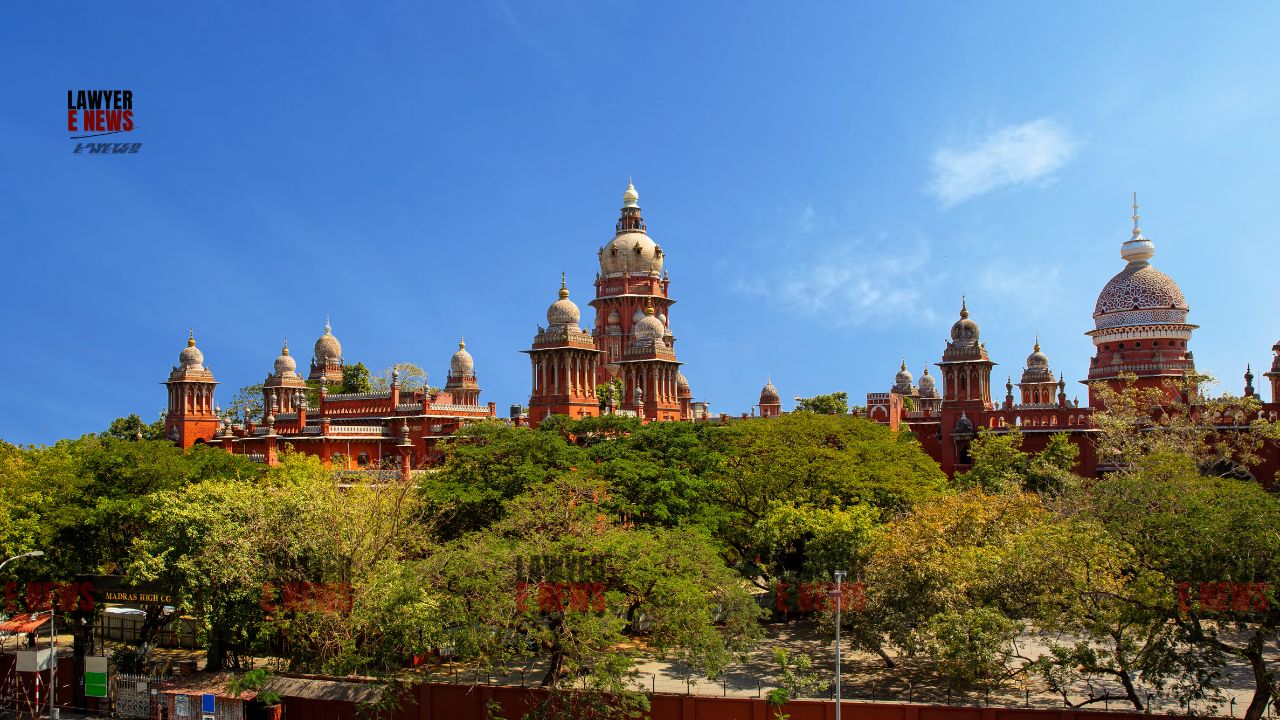-
by Admin
15 February 2026 5:01 PM



Madras High Court, under Justice G.R. Swaminathan, ruled that an order granting leave under Section 92 of the Code of Civil Procedure, 1908 (CPC) is judicial in nature and subject to revisional jurisdiction. The ruling came in response to a Civil Revision Petition (MD) No. 808 of 2021, filed by Rev. Fr. Savarimuthu and others, challenging an order by the Principal District Judge that had granted leave to file a suit concerning the administration of the Madha Trust. The court held that the trust, being a necessary party, was not impleaded in the original suit, which constituted a fundamental flaw. The Civil Revision Petition was allowed, and the impugned order was set aside.
The respondents in this case had filed a suit seeking the administration of the Madha Trust, a public trust, under Section 92 of the CPC, which requires leave from the court to institute such a suit. The Principal District Judge of Thanjavur granted leave to the respondents to proceed with the suit. However, the petitioners, Rev. Fr. Savarimuthu (deceased), Maria Selvam, and Maria Christy, filed a Civil Revision Petition challenging this decision. The petitioners argued that the respondents had not sufficiently demonstrated their interest in the trust, and that the Madha Trust itself had not been made a party to the suit, rendering the proceedings flawed.
Nature of the Order Under Section 92 CPC: Whether the order granting leave under Section 92 CPC is a judicial or administrative order.
Revisional Jurisdiction: Whether such an order is subject to revisional jurisdiction under Section 115 CPC or Article 227 of the Constitution of India.
Failure to Implead the Trust: Whether the failure to make the Madha Trust a party to the suit was a fundamental error.
The court extensively reviewed the legal precedents regarding whether an order granting leave under Section 92 CPC is administrative or judicial. The respondents had contended that such an order was administrative and therefore not subject to revision. However, Justice Swaminathan rejected this view, holding that granting leave under Section 92 CPC affects substantive rights and thus qualifies as a judicial order.
"An order granting leave under Section 92 of CPC is a judicial order and not an administrative order and is, therefore, amenable to revisional jurisdiction," the court stated [Para 15].
The court observed that the Madha Trust, which was the subject of the suit, had not been made a party to the proceedings. This, according to the court, was a fundamental flaw that went to the root of the case. The failure to implead the trust, which is a necessary party in any suit concerning its administration, rendered the grant of leave improper.
"The Trust in question is a necessary party, and if it is not impleaded as a party to the proceeding, the suit deserves to be dismissed," the court noted [Para 14].
Justice Swaminathan further discussed the maintainability of the Civil Revision Petition under Section 115 CPC or Article 227 of the Constitution. He reviewed earlier judgments from various High Courts and the Supreme Court, noting that while some courts had previously held that such orders were administrative, subsequent rulings, including those by the Supreme Court, had indicated that these orders were judicial.
The court relied on Swami Shivshankargiri Chella Swami vs. Satya Gyan Niketan (2017) and Vidyodaya Trust vs. Mohan Prasad (2006), which impliedly endorsed the maintainability of revision petitions against orders granting leave under Section 92 CPC.
"Unless it is held that an aggrieved party can question an order granting leave by filing a revision petition, a fundamental error committed by the court below cannot be corrected at the earliest stage," the court ruled [Para 14].
The Madras High Court allowed the Civil Revision Petition, holding that the order granting leave under Section 92 CPC was judicial in nature and therefore subject to revision. The court set aside the impugned order of the Principal District Judge, observing that the Madha Trust had not been made a party to the suit and that the respondents had failed to demonstrate a sufficient interest in the trust.
"The order impugned in this Civil Revision Petition is set aside. Consequently, connected miscellaneous petition is closed," the court concluded [Para 16].
The ruling clarifies the legal position regarding orders granting leave under Section 92 CPC, emphasizing that such orders are judicial and not administrative. This decision has significant implications for future cases concerning the administration of public trusts, particularly in ensuring that necessary parties like the trust itself are made part of the proceedings. The ruling also reaffirms the court's role in supervising lower courts and ensuring that fundamental errors are corrected at the earliest possible stage.
Date of Decision: October 19, 2024
